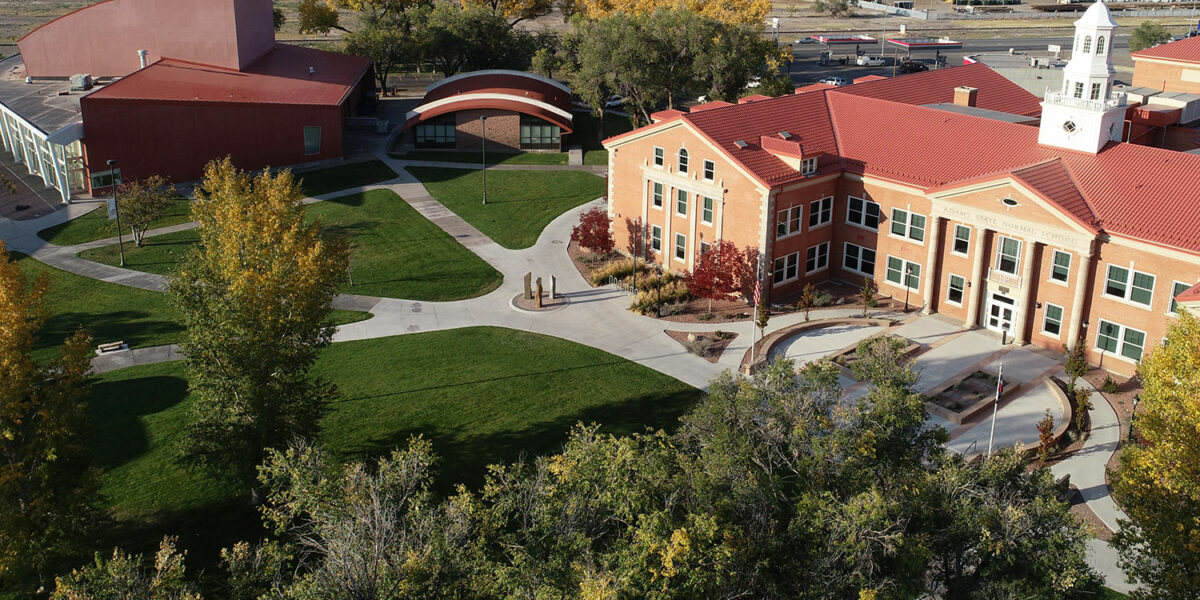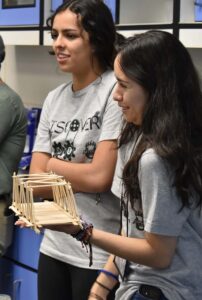 Adams Outcomes (Adams State’s institutional learning outcomes) specify the knowledge, skills, and abilities that Adams State students are expected to develop as a result of their overall experiences with any aspect of Adams State, including curricular (General Education and the majors), co-curricular, and extracurricular opportunities. These are:
Adams Outcomes (Adams State’s institutional learning outcomes) specify the knowledge, skills, and abilities that Adams State students are expected to develop as a result of their overall experiences with any aspect of Adams State, including curricular (General Education and the majors), co-curricular, and extracurricular opportunities. These are:
- Critical thinking
- Creative thinking
- Written communication
- Oral communication
- Problem-solving
- Teamwork
- Civic Engagement
- Foundations and skills for lifelong learning
Connections for Success
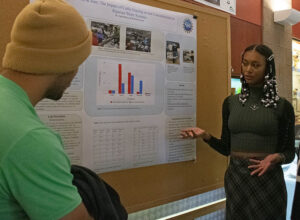 Adams Outcomes are embedded into every course. The Adams Outcomes include skills and abilities that research indicates are necessary for a highly successful life. They build from the 21st Century Skills that are integrated into most high school curricula and support the Career Competencies that employers are looking for among college graduates.
Adams Outcomes are embedded into every course. The Adams Outcomes include skills and abilities that research indicates are necessary for a highly successful life. They build from the 21st Century Skills that are integrated into most high school curricula and support the Career Competencies that employers are looking for among college graduates.
21st Century Skills
The 21st Century Skills have developed over the past forty years through extensive research on what skills, abilities, and dispositions result in lifelong success. Most states include these skills in their collection of state Standards. In Colorado, 21st Century Skills are embedded in what is now called the PWR (typically called “Power”) Standards, which is an abbreviation of the phrase “Post-Secondary Workforce Readiness.”
- Critical Thinking
- Creativity
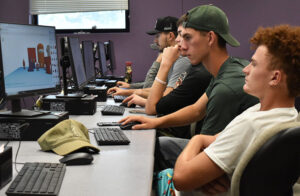
- Collaboration
- Communication
- Information Literacy
- Medical Literacy
- Technology Literacy
- Flexibility
- Leadership
- Initiative
- Productivity
- Social Skills
Career Competencies
Career Competencies were developed through ongoing research by the National Association of Colleges and Employers (NACE). In annual surveys, NACE asks employers from all industries to identify what skills they look for among their recent college graduates.
- Career and Self Development
- Communication
- Critical Thinking
- Equity and Inclusion
- Leadership
- Professionalism
- Teamwork
- Technology
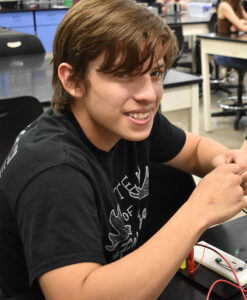
Four areas in which Adams Outcomes create connections for success
Area I: Knowledge of Human Cultures and the Physical and Natural World
Through study in the sciences and mathematics, social sciences, humanities, histories, languages, and the arts. Focused by engagement with big questions grounded in Place-based Education which encourages the learner to contextualize knowledge within local, national, and global communities.
Area II: Intellectual and Practical Skills
Critical thinking (GT)
- Critical thinking is a habit of mind characterized by the comprehensive exploration of issues, ideas, artifacts, and events before accepting or formulating an opinion or conclusion
Creative thinking (GT)
- Creative thinking is both the capacity to combine or synthesize existing ideas, images, or expertise in original ways and the experience of thinking, reacting, and working in an imaginative way characterized by a high degree of innovation, divergent thinking, and risk taking.
Written communication (GT)
- Written communication is the development and expression of ideas in writing. Written communication involves learning to work in many genres and styles. It can involve working with many different writing technologies, and mixing texts, data, and images. Written communication abilities develop through iterative experiences across the curriculum.
Oral communication (GT)
- Oral communication is a prepared, purposeful presentation designed to increase knowledge, to foster understanding, or to promote change in the listeners’ attitudes, values, beliefs, or behavior. Teamwork is behaviors under the control of individual team members (effort they put into team tasks, their manner of interacting with others on team, and the quantity and quality of contributions they make to team discussions.)
Problem-solving (GT)
- Problem solving is the process of designing, evaluating and implementing a strategy to answer an open-ended question or achieve a desired goal.
Teamwork
- Teamwork is behaviors under the control of individual team members (effort they put into teams tasks, their manner of interacting with others on team, and the quantity and quality of contributions they make to team discussions.)
Practiced extensively, across the curriculum, in the context of progressively more challenging problems, projects, and standards for performance
Area III: Personal and Social Responsibility
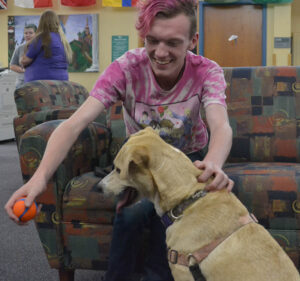 Civic Engagement (GT)
Civic Engagement (GT)
- Civic engagement is “working to make a difference in the civic life of our communities and developing the combination of knowledge, skills, values, and motivation to make that difference. It means promoting the quality of life in a community, through both political and non-political processes.” (Excerpted from Civic Responsibility and Higher Education, edited by Thomas Ehrlich, published by Oryx Press, 2000, Preface, page vi.) In addition, civic engagement encompasses actions wherein individuals participate in activities of personal and public concern that are both individually life enriching and socially beneficial to the community.
Foundations and skills for lifelong learning
- Lifelong learning is “all purposeful learning activity, undertaken on an ongoing basis with the aim of improving knowledge, skills and competence”. An endeavor of higher education is to prepare students to be this type of learner by developing specific dispositions and skills described in this rubric while in school. (From The European Commission. 2000)
Anchored through active involvement with diverse communities with particular focus on the learner’s place in Adams State’s local community and the world.
Area IV: Integrative and Applied Learning
Synthesis and advanced accomplishment across general and specialized studies
- Integrative learning is an understanding and a disposition that a student builds across the curriculum and co-curriculum, from making simple connections among ideas and experiences to synthesizing and transferring learning to new, complex situations within and beyond the campus; Demonstrated through the application of knowledge, skills, and responsibilities to new and familiar settings and through addressing complex problems.


